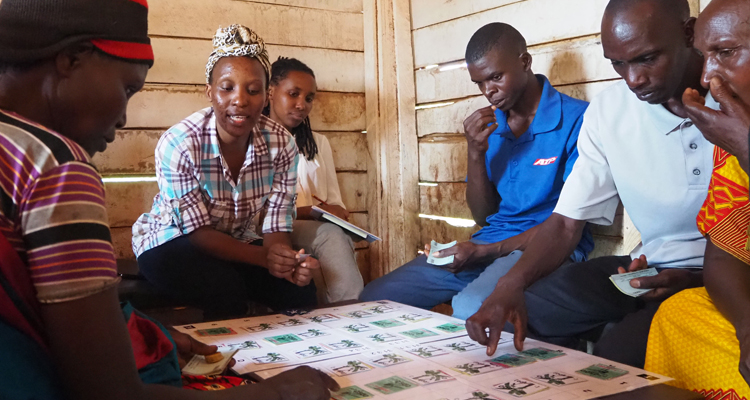
Environmental Virtual Observatories For Connective Action: EVOCA
People in rural Africa face social, economic and political challenges in sustaining their livelihoods. But the natural environments on which they depend are also under pressure. Global environmental change affects biodiversity, health, agriculture and water systems, and endanger the livelihoods and subsistence of many (smallholder) farmer communities. The implications for development in rural Africa are potentially dramatic.
Biodiversity, health, agricultural production, and water systems are all affected by spatial and temporal variabilities and dynamics. Provision of timely, accurate, and relevant information is critical to allow people to respond in appropriate way to such changes within a socio-ecological system. Think about changing water levels, the spread of plant pests, or the prevalence of vectors that cause human, livestock, and plant diseases. Unfortunately, this information is in practice often lacking. This not only affects individual ability to respond to the mentioned system changes, but also challenges collaboration and coordination between different individuals. If citizens, farmers and decisionmakers are enabled to share and access high-quality, updated, and locally tailored that is relevant to their needs and ambitions, they are in a much better position to master the development challenges they face.
Widespread access to digital innovations today gives promising prospects for addressing these challenges. ICT-based platforms for example enable various users to share environmental information across various media. This allows for linking and exchanging scientific data and knowledge with community (or indigenous) data and knowledge. Digital communication technologies may also compliment traditional means of communication and organization of collective action within socio-ecological systems.
EVOCA
- Developed and studied citizen science and participatory approaches and digital applications for resource management in African rural communities
- Studied the systemic conditions for the successful embedding of such innovations in development contexts
- Assessed how digital innovations may affect and change socio-ecological systems and/or innovation and research within these systems
- Assessed how digital applications depend on and/or change innovation and research for development R4D systems
- Drew lessons for successful digital innovations for connective action in crop, water, livestock and disease management
- Developed an interdisciplinary framework and methodology to analyze the management of public bads in African rural communities

About the project
The responsible life-sciences innovations for development in the digital age: Environmental Virtual Observatories for Connective Action (EVOCA) in crop, water, livestock and disease management (shortly EVOCA) is a multi-year collaborative, interdisciplinary programme implemented between 2016 and 2022 by Wageningen University and seven partner institutions. Funding support for EVOCA was received from the Wageningen Interdisciplinary Research and Education Fund (INREF).

Case studies
The EVOCA programme aimed to boost and study the development of Environmental Virtual Observatories for Connective Action (EVOCAs) in West and East Africa. Six case studies in four African countries covered a range of socio-ecological challenges. Each case study was represented by an interdisciplinary team of Wageningen University researchers, PhD candidate, and local and international partners. Inter- and transdisciplinarity are ingrained in the EVOCA programme. For example, five out of six cases had two PhD researchers from diverse disciplinary backgrounds (one social sciences, one natural sciences). This contributed to EVOCA’s capacity to study complex problems, public bads, and collective/connective action from diverse perspectives and to make scientific contributions to both the social and the natural sciences.

Outcomes and impact
Perhaps the most important outcome and impact of EVOCA are the 10 finalized PhD projects, which have allowed young, mostly African, researchers to kick-start their careers in academia, research, and development.

Partners

Programme-level publications